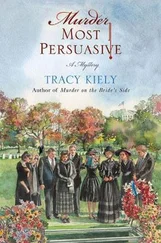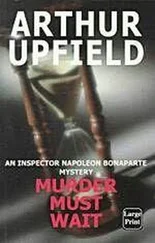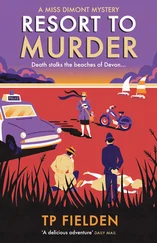“Yes. Scratched on the lid.”
“You see! He thought you’d be coming home as usual between seven and eight. The thing was to get you as quickly as possible out of the danger zone.”
“You mean—by writing me that note?”
“Yes. He didn’t know what to say. He couldn’t refer to the murder without compromising you. Then he thought of Uncle Gedeon. Whether he believed in his existence or not doesn’t matter. He knew you’d go to the Gare d’Austerlitz.”
“But he’s not yet eleven!”
“Boys of that age know a lot more than you think. Doesn’t he read detective stories?”
“Yes.”
“Of course he does. They all do. If they don’t read them, they get them on the radio. Perhaps that’s why he wanted a set of his own so badly.”
“It’s true.”
“He couldn’t stay in the flat to wait for you, for he had something more important to do. He had to get hold of that box. I suppose he knew the courtyard well. He’d played there, hadn’t he?”
“At one time, yes. With the concierge’s little girl.”
“So he’d know about the rainwater pipes, may even have climbed up them for sport.”
“Very well,” said Olivier, suddenly calm, “let’s say he gets into the room and takes the box. He wouldn’t need to climb down the way he’d come. He could simply walk out of the flat and out of the house. You can open the house door from inside without knocking up the concierge. You say it was at about six o’clock, don’t you?”
“I see what you’re driving at,” grunted the Inspector. “Even at a leisurely pace, it would hardly have taken him two hours to walk to the Gare d’Austerlitz. Yet he wasn’t there.”
Leaving them to thrash it out, Lecœur was busy telephoning.
“No news yet?”
And the man at the Gare du Nord answered, “Nothing so far. We’ve pounced on any number of boys, but none of them was Francois Lecœur.”
Admittedly, any street boy could have pinched a couple of oranges and taken to his heels. The same couldn’t be said for the broken glass of the telephone pillars, however. Andre Lecœur looked once again at the column with the seven crosses, as though some clue might suddenly emerge from them. He had never thought himself much cleverer than his brother. Where he scored was in patience and perseverance.
“If the box of sandwiches is ever found, it’ll be at the bottom of the Seine near the Pont Mirabeau,” he said.
Steps in the corridor. On an ordinary day they would not have been noticed, but in the stillness of a Christmas morning everyone listened.
It was an agent cycliste , who produced a bloodstained blue-check handkerchief, the one that had been found among the glass splinters at the seventh telephone pillar.
“That’s his, all right,” said the boy’s father.
“He must have been followed,” said the Inspector. “If he’d had time, he wouldn’t merely have broken the glass. He’d have said something.”
“Who by?” asked Olivier, who was the only one not to understand. “Who’d want to follow him?” he asked. “And why should he call the police?”
They hesitated to put him wise. In the end it was his brother who explained:
“When he went to the old woman’s he thought you were the murderer. When he came away, he knew you weren’t. He knew—”
“Knew what?”
“He knew who was. Do you understand now? He found out something, though we don’t know what. He wants to tell us about it, but someone’s stopping him.”
“You mean?”
“I mean that Francois is after the murderer or the murderer is after him. One is following, one is followed—we don’t know which. By the way, Inspector, is there a reward offered?”
“A handsome reward was offered after the third murder and it was doubled last week. It’s been in all the papers.”
“Then my guess,” said Andre Lecœur. “is that it’s the kid who’s doing the following. Only in that case—”
It was twelve o’clock, four hours since they’d lost track of him. Unless, of course, it was he who had snaffled the oranges in the Rue Maubeuge.
Might not this be his great moment? Andre Lecœur had read somewhere that even to the dullest and most uneventful lives such a moment comes sooner or later.
He had never had a particularly high opinion of himself or of his abilities. When people asked him why he’d chosen so dreary and monotonous a job rather than one in, say, the Brigade des Homicides, he would answer: “I suppose I’m lazy.”
Sometimes he would add:
“I’m scared of being knocked about.”
As a matter of fact, he was neither lazy nor a coward. If he lacked anything it was brains.
He knew it. All he had learned at school had cost him a great effort. The police exams that others took so easily in their stride, he had only passed by dint of perseverance.
Was it a consciousness of his own shortcomings that had kept him single? Possibly. It seemed to him that the sort of woman he would want to marry would be his superior, and he didn’t relish the idea of playing second fiddle in the home.
But he wasn’t thinking of all this now. Indeed, if this was his moment of greatness, it was stealing upon him unawares.
Another team arrived, those of the second day shift looking very fresh and well groomed in their Sunday clothes. They had been celebrating Christmas with their families, and they brought in with them, as it were, a whiff of good viands and liqueurs.
Old Bedeau had taken his place at the switchboard, but Lecœur made no move to go.
“I’ll stay on a bit.” he said simply.
Inspector Saillard had gone for a quick lunch at the Brasserie Dauphine just around the corner, leaving strict injunctions that he was to be fetched at once if anything happened. Janvier was back at the Quai des Orfèvres, writing up his report.
If Lecœur was tired, he didn’t notice it. He certainly wasn’t sleepy and couldn’t bear the thought of going home to bed. He had plenty of stamina. Once, when there were riots in the Place de la Concorde, he had done thirty-six hours nonstop, and on another occasion, during a general strike, they had all camped in the room for four days and nights.
His brother showed the strain more. He was getting jumpy again.
“I’m going,” he announced suddenly.
“Where to?”
“To find Bib.”
“Where?”
“I don’t know exactly. I’ll start round the Gare du Nord.”
“How do you know it was Bib who stole the oranges? He may be at the other end of Paris. We might get news at any minute. You’d better stay.”
“I can’t stand this waiting.”
He was nevertheless persuaded to. He was given a chair in a corner. He refused to lie down. His eyes were red with anxiety and fatigue. He sat fidgeting, looking rather as, when a boy, he had been put in the corner.
With more self-control, Andre forced himself to take some rest. Next to the big room was a little one with a wash-basin, where they hung their coats and which was provided with a couple of camp beds on which the nuiteux could lie down during a quiet hour.
He shut his eyes, but only for a moment. Then his hand felt for the little notebook with never left him, and lying on his back he began to turn over the pages.
There were nothing but crosses, columns and columns of tiny little crosses which, month after month, year after year, he had accumulated, Heaven knows why. Just to satisfy something inside him. After all, other people keep a diary—or the most meticulous household accounts, even when they don’t need to economize at all.
Those crosses told the story of the night life of Paris.
“Some coffee, Lecœur?”
“Thanks.”
Feeling rather out of touch where he was. he dragged his camp bed into the big room, placing it in a position from which he could see the wall-plan. There he sipped his coffee, after which he stretched himself out again, sometimes studying his notebook, sometimes lying with his eyes shut. Now and again he stole a glance at his brother, who sat hunched in his chair with drooping shoulders, the twitching of his long white fingers being the only sign of the torture he was enduring.
Читать дальше












